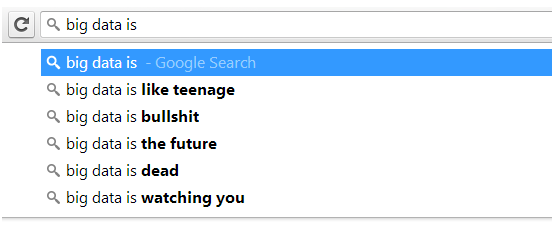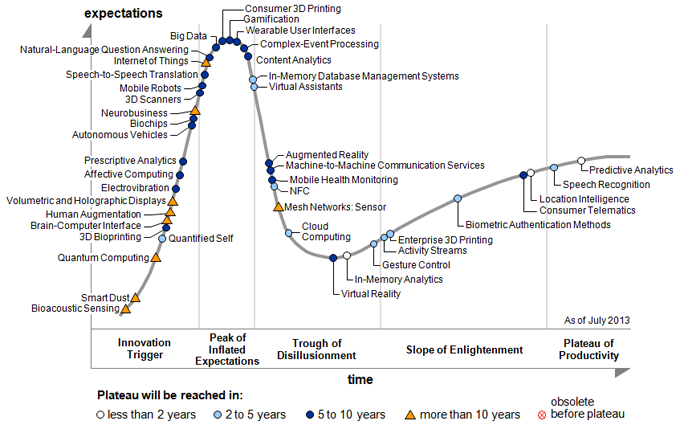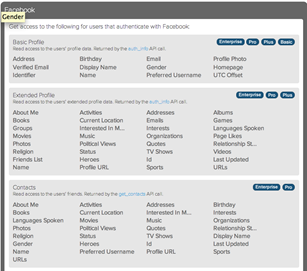What do you get when you type “big data is” into Google Live Search? An interesting view into what people think about the term!

Here’s a quick run down / explanation of each of the entries with some links:
What do you get when you type “big data is” into Google Live Search? An interesting view into what people think about the term!

Here’s a quick run down / explanation of each of the entries with some links:
Big Data is Like Teenage Sex
This saying is usually attributed to Dan Ariely of MIT, who posted the following on Facebook:
Big data is like teenage sex: everyone talks about it, nobody really knows how to do it, everyone thinks everyone else is doing it, so everyone claims they are doing it…
The saying has been around for a few years, so the chances of that teenager actually doing what they say they’ve been doing have been rising steadily! More and more large organizations are indeed “really” doing Big Data – depending on how you define it. And that brings us to the next term…
Big Data Is Bullshit
The Global Language Monitor site has labeled big data the Top Tech Buzzword That Everybody Uses But Don’t Quite Understand, and a lot of people hate the term.
Among other things, critics point out that “big data” has been around for a long, long time. Here, for example, is a Google Books snippet of a “Marketing Communications” journal in 1913: “the reports and catalogues were there, but they were not arranged to give up the kind of information wanted.”

The most common “3Vs” definition of big data was created by analyst Doug Laney in 2001:
Big data is high-volume, high-velocity and high-variety information assets that demand cost-effective, innovative forms of information processing for enhanced insight and decision making.
But according to the New York Times, the person with the best claim to coining the modern sense of the term big data was John R. Mashey, chief scientist at Silicon Graphics in the mid-1990s. He used the term extensively in presentation such as this one from 1998: Big Data and the Next Wave of Infrastress. He explained:
“I was using one label for a range of issues, and I wanted the simplest, shortest phrase to convey that the boundaries of computing keep advancing…”
Big Data is The Future
As we’ve already pointed out, there are lots of different definitions of big data to disagree with, but one thing seems clear: there has been a big increase in our ability to store and analyze data with new technologies such as Hadoop and other “NoSQL” databases, and fast in-memory processing.
If you’re interested in futuristic examples of how people are using big data today, Rick Smolan’s book “The Human Face of Big Data” is a great place to start.
Big Data is Dead
Gartner believes that the term has reached the peak of “inflated expectations” and is ready to fall into the “trough of disillusionment.”
Over time, we’ll probably stop talking about “big data” and just talk about “data.”
Big Data is Watching You
Rampant “datification” means that our every activity is being tracked by somebody, somewhere.
Our mobile phone and credit card transactions can give a scarily-detailed view into how we spend our daily lives. RFID chips in our passports, bank cards, and clothes can be automatically read as soon we get close enough to a sensor. Our cars are recording our speed and other data, ready to be used in the event of a crash (and European security experts are mulling the installation of mandatory “kill switches” that could stop cars at a distance). Cameras and face-recognition software track us as we walk down the street. Networked home appliances, or smart meters with smart algorithms, can get a real-time view of who is home at any moment, and what their activity is (the “signature” of a kettle, washing machine, computer, etc. are very different). Wearable technology such as Google Glass are raising concerns. Here’s the data websites receive when you use the “login with Facebook” option on their site:
And, of course, the NSA and other security agencies around the world that are storing all of that information, and more, in gigantic data warehouses, and can search up to several years in the past.
Big data is an incredibly powerful weapon. We must use it wisely and industry vendors should be in the forefront of addressing the ethical concerns.








